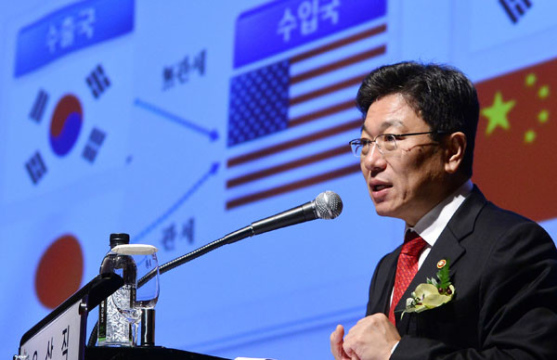
Mexican vs Chinese Factories
With the rising cost of wages in China, manufacturers are increasingly considering Mexico an attractive location to ‘re-shore’ production.
 Agustín Carstens, Mexico’s longstanding central bank governor, is delaying his planned resignation from July until November this year, reportedly to help the government renegotiate provisions of the North American Free Trade Agreement. Widely respected on Wall Street, Carstens is slated to become head of the Bank for International Settlements. How important is Carstens to the Mexican government’s standing in international markets? What pressures and challenges does he face at the helm of Banxico in the coming months? Facing external pressures and a record-low currency, should Mexico make major changes in how it manages its monetary policy?
Agustín Carstens, Mexico’s longstanding central bank governor, is delaying his planned resignation from July until November this year, reportedly to help the government renegotiate provisions of the North American Free Trade Agreement. Widely respected on Wall Street, Carstens is slated to become head of the Bank for International Settlements. How important is Carstens to the Mexican government’s standing in international markets? What pressures and challenges does he face at the helm of Banxico in the coming months? Facing external pressures and a record-low currency, should Mexico make major changes in how it manages its monetary policy?
See our Q&A in the Latin America Advisor with Tapen Sinha, professor of risk management at the Instituto Tecnológico Autónomo de México; David Ross, global equity fund manager at La Financière de l’Echiquier in Paris; and Alfredo Coutiño, director for Latin America at Moody’s Analytics.
Every business day, the Latin America Advisor features commentary and analysis from global leaders in policy, economics and finance. Our subscribers include Apple, BMW, Google, Merck and S&P, to name a few, as well as leading universities such as Berkeley, Harvard, Dartmouth and Notre Dame, and government agencies on four continents. It is available to members of the Dialogue’s Corporate Program and others by subscription.
With the rising cost of wages in China, manufacturers are increasingly considering Mexico an attractive location to ‘re-shore’ production.
South Korea’s entry into the TPP will promote stronger cooperation between South Korea and Latin America.
Mexican civil society organizations and individuals are pressing for education reform, including reducing the Teachers’ Union.
